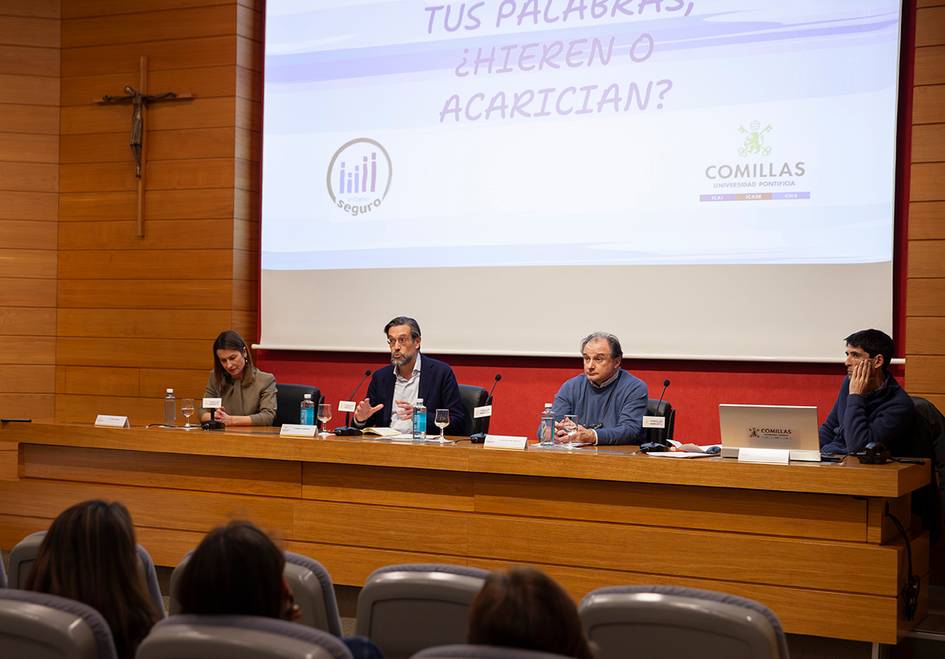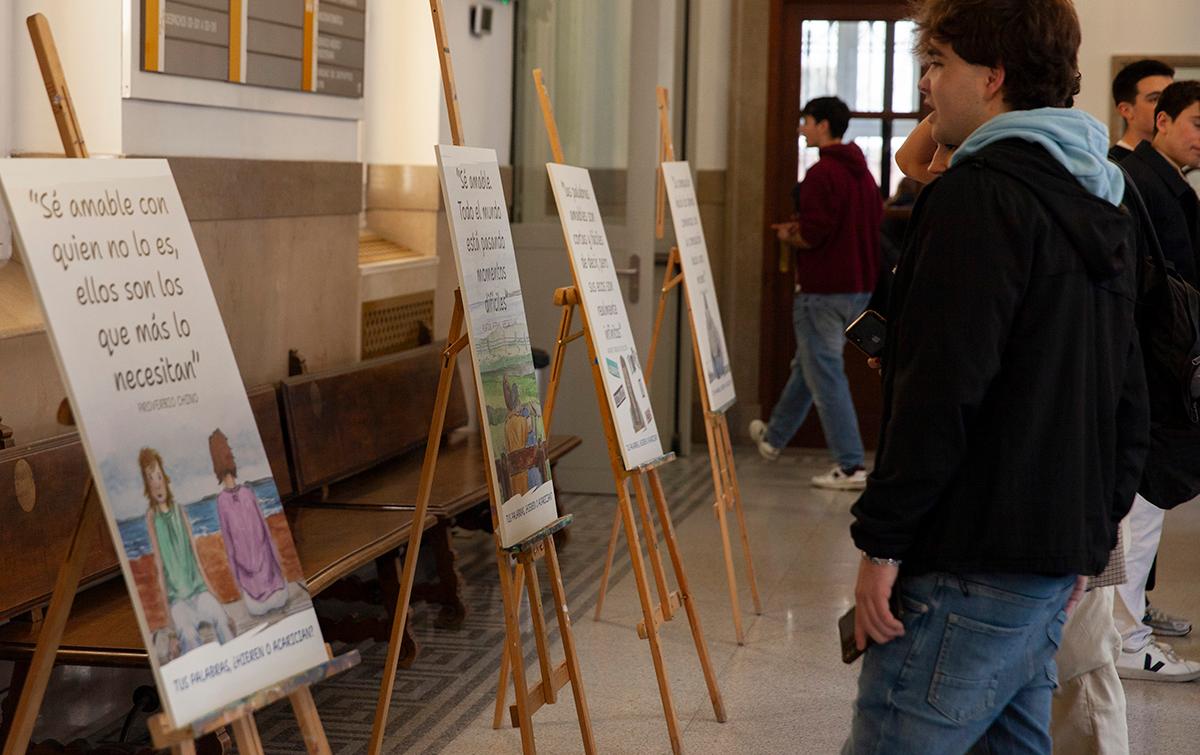Words, a fundamental tool for good treatment
Comillas organised the conference "Tus palabras, ¿hieren o acarician?", as part of the commemorations of the Day of Good Treatment and Care of the Society of Jesus

conference "Tus palabras, ¿hieren o acarician?"
8 February 2024
Comillas Pontifical University wanted to join in the commemoration of the Day of Good Treatment and Care, an initiative promoted by the Society of Jesus for all its works within the framework of the Safe Environment System, by organising a series of activities aimed at focusing on the importance of communication to improve the relationship with others.
The main event of the commemoration in Comillas was the conference "Tus palabras, ¿hieren o acarician?" a meeting that could be followed in person and also via streaming, in which Julián Ríos Martín, lawyer and lecturer at the Faculty of Law (Comillas ICADE); Mariela Rubio, journalist and lecturer at the Faculty of Humanities and Social Sciences (Comillas CIHS), and José García de Castro, SJ, writer and lecturer at the Faculty of Theology (Comillas CIHS), addressed the importance of words as a tool for relationships, communication and work.
The Vice-Rector for Institutional Relations and General Secretary, Federico de Montalvo, was in charge of opening and conducting the conference. During his speech, he took the opportunity to read the manifesto issued by Entorno Seguro and recalled that the university is strongly committed to fostering and promoting healthy relationships, and that it has tools and channels to mitigate and prevent situations of violence. "It is not only about eradicating bad treatment, but also about implementing good treatment while respecting the uniqueness of each individual," he said.
Julián Ríos, a specialist in mediation and restorative encounters, opened the round of interventions by recalling the importance of silence. "Before speaking, we must ask ourselves where our words come from, do they come from silence or from an egoic relationship? "We think we speak freely, but 90% of us are traversed by family, biographical and socialisation systems," he said.
Mariela Rubio focused her intervention on the health of public conversation. "Social networks have replaced the media and this has changed the tone. Networks foster a deregulated model in which dynamics and business reward violence and conflict," she said. "Today's news times are thought-provoking. However, we have an obligation to try to report more and more rigorously. We cannot ask for a collective reflection without reflecting individually", she concluded.
During his speech, José García de Castro recalled that we think in our language and we cannot escape from it. "The word is twinned with listening and silence. If we go back to Genesis, we see that God created the world through words. We can transform it," he said. Finally, García de Castro made an apology: "To greet is to establish a safe and close bond. It is a healthy openness to others, consideration and respect for their presence.
In addition to this meeting, which brought together a significant part of the university community, the university organised other initiatives within the framework of the Safe Environment proposal. These included the workshop "Conversaciones positivas, empáticas y eficientes", aimed at Atministration adn Services Staff and Teaching and Research Staff, and an exhibition on the theme of the conference.
More photos
You may also be interested in

Comillas organised the conference "Tus palabras, ¿hieren o acarician?", as part of the commemorations of the Day of Good Treatment and Care of the Society of Jesus
